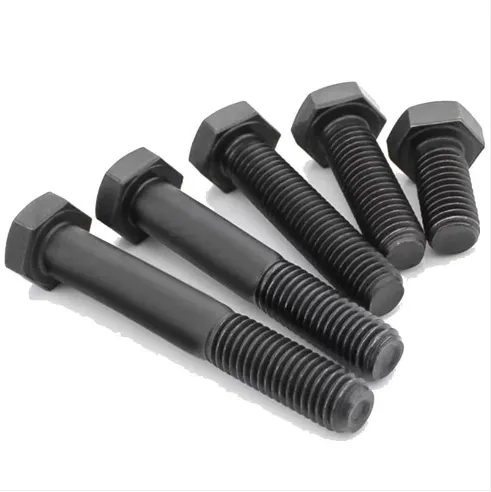Siding Fasteners and Hardware Solutions for Durable Construction Projects
Dec . 24, 2024 06:45 Back to list
Siding Fasteners and Hardware Solutions for Durable Construction Projects
The Importance of Choosing the Right Siding Screws for Your Project
When it comes to home construction and renovation, the details often determine the quality and longevity of the finished product. One such detail that should not be overlooked is the choice of siding screws. Siding screws are vital components in the construction of exterior structures, and choosing the right type can significantly impact the durability and overall aesthetic of your siding. This article delves into the importance of siding screws, their types, and how to select the right screws for your next project.
Understanding Siding Screws
Siding screws are specifically designed fasteners that help secure siding materials—such as vinyl, wood, fiber cement, or metal—onto the exterior of a building. Unlike regular screws, siding screws are engineered to withstand outdoor conditions, offering resistance against corrosion and rust, which are critical factors in prolonging the lifespan of your siding.
Types of Siding Screws
There are various types of siding screws, each suited for different siding materials
1. Vinyl Siding Screws These screws are usually made from stainless steel or coated steel to resist corrosion. They have a sharp point to penetrate vinyl easily without creating cracks. Typically, they come with a special design that allows for expansion and contraction due to temperature changes, ensuring they remain secure over time.
2. Wood Siding Screws For wooden siding, it’s essential to select screws that can resist splitting. These screws often have a coarse thread and come with a design that allows for better grip in wood. Many wood siding screws are treated to resist rot and corrosion, which is vital for areas subjected to moisture.
3. Fiber Cement Siding Screws Fiber cement materials require harder screws that can penetrate dense surfaces without breaking. Fiber cement siding screws are generally longer than other screws, which helps keep the siding firmly in place, reducing the chances of warping or detaching.
4. Metal Siding Screws For metal siding, self-tapping screws are often used. These screws come with a drill-like point that allows them to create their own hole, eliminating the need for a pre-drilled pilot hole. They are typically made from galvanized or stainless steel to prevent rusting.
siding screws company

Each type of siding screw has unique characteristics that make it suitable for specific materials, emphasizing the importance of selecting the right screw for your siding project
.Factors to Consider When Choosing Siding Screws
When selecting siding screws, several factors should be taken into account
1. Material Compatibility Always choose screws that match the material of your siding. Using improper screws can compromise the integrity and aesthetics of your siding installation.
2. Weather Resistance If your home is located in an area with extreme weather conditions, opt for screws that feature weather-resistant coatings, such as zinc or ceramic finishes.
3. Length and Diameter The length and diameter of the screws should be suitable for the thickness of the siding material. Longer screws provide better anchorage, while thicker screws can handle more significant loads.
4. Thread Design The thread design can influence how well the screws grip the material. Coarse threads work better in softer materials, while finer threads are suitable for denser materials.
Conclusion
Selecting the right siding screws is crucial for the success of your siding installation project. By considering factors such as material compatibility, weather resistance, length, diameter, and thread design, you can ensure the durability and longevity of your siding. The right choice of siding screws not only enhances the structural integrity of your home but also helps maintain its aesthetic appeal for years to come. Investing time in understanding and selecting the proper siding screws will ultimately lead to a successful and satisfactory home improvement project.
Latest news
-
High-Quality Bolts for Lawn Mower Handle Supplier & Manufacturer
NewsAug.21,2025
-
Reliable Axle Nuts Supplier | High-Quality Automotive Parts
NewsAug.19,2025
-
Premium Wire Bolts Suppliers | Durable & Reliable Fasteners
NewsAug.18,2025
-
Leading Metric Wood Screw Companies & Manufacturers
NewsAug.17,2025
-
Top Wire Bolts Suppliers - Quality & Durable Fasteners
NewsAug.15,2025
-
Trusted Wire Bolts Company | Quality Fasteners Supplier
NewsAug.14,2025
